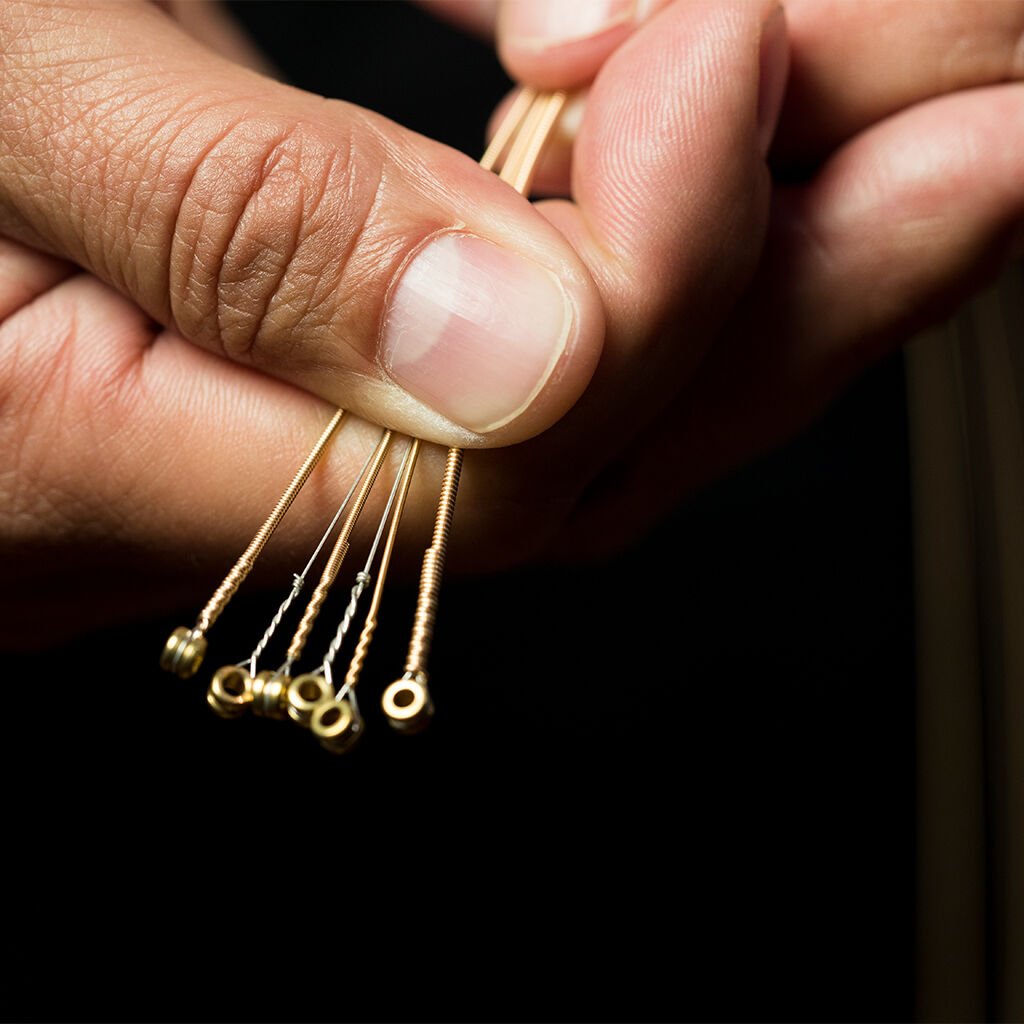Tips & Tutorials | February 28, 2022
String Materials Explained
by Kristi Bronico

Imagine standing in a music store, staring at the massive wall of strings. You’re trying to decide what to buy because you know it’s time to restring your acoustic guitar. Now, if you like the sound of the strings that came strung on your guitar AND you know what they are, you’re in luck. But if you don’t, you’ve got some soul searching to do. Ok, maybe you have some “string” searching to do. Either way, we’re here to offer some guidance about the two most popular options.
When it comes to choosing strings, one of the most frequently asked questions is, “What’s the difference between 92/8 Phosphor Bronze and 80/20 Bronze?”.
While it may not be easy to hear the difference unless you’re listening for it, there are definitely nuances that differentiate the two, however subtle they may be. I’m going to explain those nuances regarding Martin strings, but first, let’s touch on what the numbers in 92/8 and 80/20 mean.
92/8 Phosphor Bronze means 92% of the string is made of copper, and 8% is made of tin phosphide.
80/20 Bronze means 80% of the string is made up of copper, and 20% of the string is made up of zinc.
Ok. That probably isn’t very helpful, but you never know when it might be a question on Jeopardy, right?
So, more importantly, how do these percentages and mix of metals translate to tone when you put them on your guitar?

Well, 92/8 Phosphor Bronze strings will give you a more complex sound than 80/20 Bronze, meaning you will hear more complex overtones in the higher frequencies. 92/8 Phosphor Bronze produces a very well-rounded sound that is clean and even right out of the box, and that sound will last throughout the life of the string. This blend is suitable for a wide variety of music styles which is why it’s so popular. In fact, it’s our best-selling string material.

In contrast, you have 80/20 Bronze strings that will give you less complexity in the upper harmonics. The sound will be very bright when you start playing them, but they will mellow out quickly. You may prefer 80/20 if you’re looking for a bright, punchy attack when you first put them on your guitar, but you want an overall mellower sound as you play them. Bluegrass players often choose 80/20 strings because of their mellower sound. Bluegrass bands tend to be large, with many instruments, and the guitar needs to sit well in the mix, so it doesn’t overpower the other instruments. 80/20 Phosphor Bronze strings also tend to have a little bit of a warmer sound throughout the range and throughout the life of the string.
As with anything to do with sound or tone, everyone’s preferences differ. I recommend that you try both and see what works best for you and the music you enjoy playing.
Follow along for more tips and tales from the Martin Guitar blog.
Other String Resources: